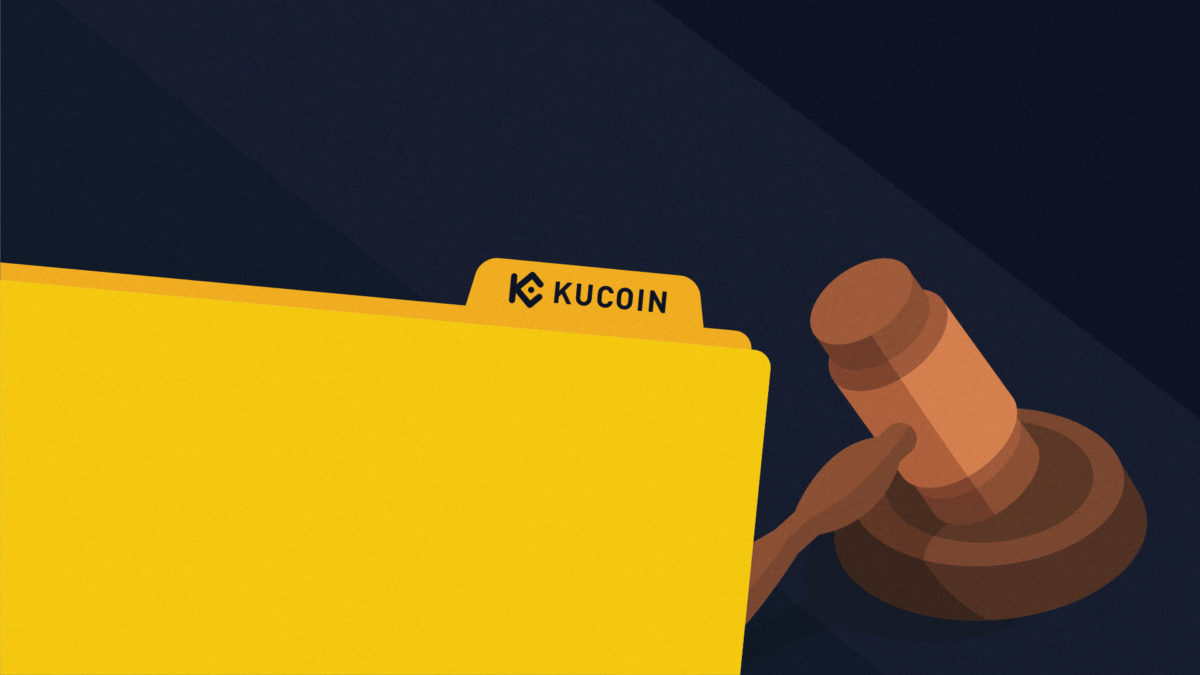Crypto investor can sue KuCoin exchange over TomoChain in class action

A class of crypto investors can sue exchange KuCoin for acting as an unregistered securities broker-dealer and failing to publish adequate risk information, reports Law360.
A New York magistrate judge has recommended that certification be granted to a narrowed class of harmed investors as the lawsuit proceeds in the Southern District of New York.
Lead plaintiff Chase Williams is suing KuCoin and its co-founders, alleging they misled the public about the status of tokens by failing to deliver required disclosures.
Williams originally requested that the class action include KuCoin users who bought and sold any tokens between September 15, 2017, and July 2, 2021.
This would encompass most tokens borne from the initial coin offerings (ICOs) that ran in the lead-up to crypto’s legendary bull run between 2017 and 2018 — which have mostly failed.
US Magistrate Judge Robert W. Lehrburger limited that request to KuCoin users who bought and sold TomoChain (TOMO) tokens through the exchange — a particularly egregious offering that had higher relevance to the lead plaintiff.
Each alleged security token needs scrutiny
Williams filed his securities token lawsuit against Singapore-headquartered KuCoin and its founders in 2020.
As lead plaintiff, he merely sought damages for the $4,000 he used to buy tokens, as well as interest and attorney fees.
The far more important group of follow-on investors who would join his class action could raise that figure into the millions.
The judge cited “judicial economy” in considering only one action, rather than separate actions by each plaintiff.
Lehrburger stated that Williams lacked standing to make claims related to crypto tokens that he had not traded himself.
Lehrburger also reasoned that each token in question would have to be analyzed separately to determine whether it met the legal definition of a security, and “the fact analysis required for each token is an intensive one.”
By limiting the class to buyers and sellers of TOMO tokens, “Williams […] need not introduce evidence with respect to any other tokens to establish that fact or any other material fact.”
The case can still meet all the requirements of a class action lawsuit, according to the magistrate judge’s report (via Law360).
There are currently 26 additional class members. More will have an opportunity to join at a later date.
Comparing tokens to Bitcoin to dupe newbies
Specifically, the case argues that the only information available to crypto investors was found in project white papers.
These documents generally detail token utility in very technical terms to “prey” on newbie investors unfamiliar with the technology, said the investor.
The claimant argues projects fraudulently compared their tokens to Bitcoin in a bid to imply they were not securities.
They allege that post-ICO, token issuers would petition Binance and other large exchanges to list their coins in a bid to attract broader investment.
Once listed, exchanges themselves would manage promotion of the tokens, allegedly making considerable profits (often in the millions) in the process.
Lehrburger recommended the law firms Roche Freedman and Selendy & Gay represent the plaintiffs in this lawsuit, citing their experience in prosecuting complex financial class actions.
Williams’ case was one of 11 suits filed against four cryptocurrency exchanges, including KuCoin, in a New York federal court in April 2020.
The lawsuits allege manipulative behavior by the exchanges’ owners. Plaintiffs also claimed the exchanges were negligent in checking whether token issuers themselves were following state and federal regulations.
All 11 suits alleged that certain tokens listed on exchanges, including TOMO on KuCoin, failed the Howey Test.
In April this year, Protos reported just five lawsuits were still in play.
KuCoin’s previous issues
In June 2020, the Ontario Securities Commission (OSC) published a Statement of Allegations claiming that KuCoin’s parent companies, Mek Global Limited and PhoenixFin, violated securities law by operating a crypto asset trading platform that had not been registered in Ontario.
The OSC also alleged that KuCoin failed to reply to a previous request to contact its staff.
In September 2020, KuCoin officials announced they were working with law enforcement to resolve a hack in which $281 million in Bitcoin and Ethereum-based tokens were stolen.
Read more: [Ontario SEC wants to kick crypto ass and take names — KuCoin is next]
At the time, it was the third-largest exchange hack ever, eclipsed only by Mt. Gox and CoinCheck.
In October 2020, KuCoin CEO Johnny Lyu announced that suspects had been located during their investigation, and $204 million worth of stolen funds were recovered.
Follow us on Twitter for more informed crypto news.
